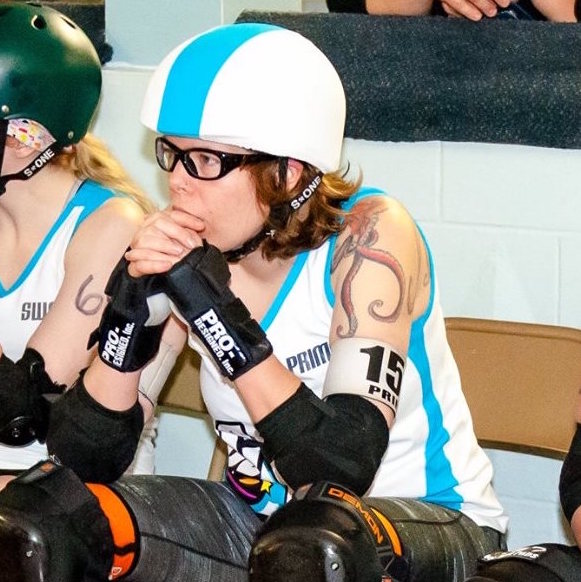
I once heard a story about an athlete who was skipped over for a spot on their team because they cried after successfully completing a skills test. The coaching staff felt like that athlete just didn’t have the “mental toughness” to play in a high-level, high-pressure competition.
Because they showed an emotion. AFTER a task was complete.
What a strong mindset is (and what it isn’t)…
There seems to be a prevailing idea about mental strength and fortitude in our society that equates being mentally resilient with being stoic, unfeeling, robotic, Spockian.
And I’m here to call bullshit on that.
Emotions are NOT your enemy. The emotions you feel in games or practices or life are not bad, nor should we spend all of our efforts in strengthening our mental game at learning to suppress them.
Think of the joy we’ve seen athletes feel and express when they win the biggest competition of their lives. Whether that’s the Olympics, the World Cup, or the local crosstown rivalry.
You don’t have to shut down your emotions to have a mentally strong game.
If you really think about what a mentally strong and resilient person can do, it’s separate from the emotions they feel. It’s not about NOT feeling emotions, it’s about being able to control whether you focus on those emotions or not.
Athletes with honed athletic mindsets control their focus, not necessarily their emotions.
It’s not about not getting upset when someone accidentally pops you in the face. You’re allowed to feel angry!
It IS about being able to exercise your ability to focus elsewhere. To feel that flush of anger about getting hit in the face (or wherever else) and still focus on what your next move might be.
In fact, the whole culture idea of “strong” or “tough” mindsets seems to imply that there’s only ONE WAY to manage your mental game and that’s simply not true. Your mental flexibility and resiliency will exhibit themselves in all sorts of ways that help aid your performance.
You don’t have to look “tough.” You don’t have to be “strong.” You just have to find what works for you.
Why work on your mindset/mental game at all?
Well, first of all, because you need to figure out what works for you!
And also because Yogi Berra said so.
“Baseball is 90% mental and the other half is physical.”
And while that answer is a bit tongue-in-cheek, there’s a very real reason to start focusing on how your brain responds to the sport that you’re playing. While we play, our heart rate becomes elevated and our body starts picking up cues that maybe it’s — gasp — IN DANGER.
Consider it a throwback to ye olde fight-or-flight response.
A fight-or-flight response that comes out of nowhere, lead by the physiological changes in your body during a game or practice, will be instinctual. That means that you most likely won’t be making a conscious decision about how you respond. Your body will either prepare to fight, prepare for flight, or prepare to freeze.
Then it will do that thing, whether you want it to or not.
Actively working on your mental game is a way to channel that automatic response into something useful. To practice (and learn) how to make decisions with your brain based on what you want or need rather than the physiological cues of your body. It’s learning how to navigate the experience of a high-pressure situation without relying on just your instincts.
The skill that it takes to go against your body’s instinctual DANGER COMMAND is one that takes practice. Consider it as new sports skill. Just like every other sport skill you might want to learn. That you’ll have to practice over and over again.
Just like a free throw. Just like a slot pattern. Just like a deke. Just like an apex jump.
THAT’S WHY WE WORK ON OUR MENTAL GAME.
So that we know, when the rubber meets the road or the shit hits the fan, that we are still in control of what we do. To ensure that our fight-or-flight response doesn’t take over.
Want More?
This blog post is an excerpt from Train Your Brain to Shut Up. A book developed specifically to provide athletes with the tools to improve their mental game. This journal gives you the tools to build an athletic mindset that supports—instead of sabotages —your performance.
Just like your physical training, your mental training is integral to your success in-game. And it takes practice and training to get it the way that you want you. With this journal, you’ll learn:
- What mindset is (and what it isn’t).
- Why (and how) to build an anti-anxiety pre-game routine.
- To recognize your negative thoughts without letting them sink you.
- Tricks to flip your thoughts into something less negative.
- Ways to turn around “bad” practices or games.
- A consistent way to PRACTICE your athletic mindset.
Focused journal prompts to work on your mental game all wrapped up in a package you can fit inside your kit bag.

